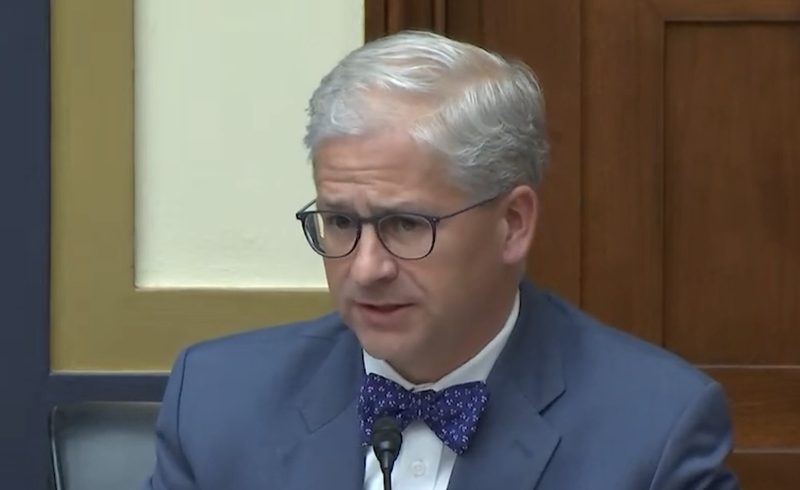Crypto-friendly congressman Patrick McHenry has temporarily assumed the role of US House Speaker after Kevin McCarthy was ousted by Congress.
On Tuesday, McCarthy was as House Speaker in a House of Representatives vote, marking the first successful ousting of a sitting speaker in history.
Notably, McCarthy is known for his crypto-friendly stance as a Republican.
He has previously expressed his affinity for Bitcoin and voiced support for the decentralization aspect of cryptocurrencies.
In 2019, before the collapse of FTX and lenders like Celsius and BlockFi, he lauded the potential of blockchain technology to revolutionize the security of the financial industry.
Stepping into McCarthy’s shoes, Representative Patrick McHenry is set to assume the role of Speaker Pro Tempore.
McHenry has also demonstrated a crypto-friendly stance and has chaired committees overseeing digital asset bills.
In July, he emphasized the significance of American innovation and consumer protection as the Hill embarked on its first-ever legislative markup of digital asset legislation.
Furthermore, McHenry has shown support for the Grayscale ruling and has raised questions about the timing of Prometheum’s special purpose broker-dealer approval.
More recently, he also that he’s determined to advance stablecoin regulation and aims to get it to President Biden’s desk to be signed into law.
During the makeup session of the stablecoin bill, he expressed disappointment in the White House’s unwillingness to compromise, which brought the negotiations to a halt.
As the House moves forward, the official replacement for McCarthy is yet to be determined, requiring the election of a new speaker.
Gaetz has publicly voiced his support for House Majority Whip Tom Emmer.
Several Crypto Bills Await a Vote
Back in July, lawmakers from the House Financial Services Committee of several crypto-focused bills.
The Financial Innovation and Technology for the 21st Century Act (FIT), the Blockchain Regulatory Certainty Act, the Clarity for Payment Stablecoins Act, and the Keep Your Coins Act garnered support and were among the more notable bills passed by the committee.
These bills could potentially be brought to a House floor vote during the current session of Congress.
As , the United States Senate passed a bipartisan bill on Saturday evening, just three hours before the midnight deadline, to prevent a government shutdown.
The bill, which received overwhelming support with a vote of 88 to 9, funds the government for the next 45 days, until November 17.
At the time, McCarthy had to rely on Democratic votes for passage due to opposition from the hard-right faction within his party.
To secure approval, the speaker implemented a voting process requiring a two-thirds supermajority, equivalent to about 290 votes in the 435-member House.






